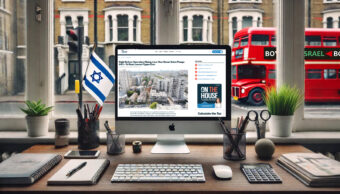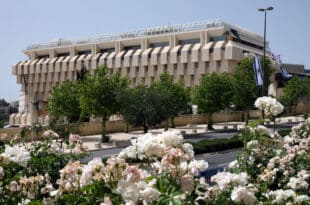Lowering your electricity bill in Israel doesn’t mean sacrificing comfort — it means using energy wisely. With recent reforms opening the electricity market to competition, consumers now have more control than ever. By combining smart habits, efficient technologies, and thoughtful design, you can create a home that’s both comfortable and cost-effective. This article offers practical, Israel-focused strategies to help you save energy and money — whether you’re building, renovating, or simply looking to cut your monthly costs.
Electricity costs in Israel can add up fast — especially during blazing summers, chilly Jerusalem nights, and long chagim with guests, cooking, and back-to-back laundry cycles. But with a few intentional choices — some big, some small — you can keep your home comfortable while significantly cutting back on your electricity bill.
Whether you live in an old apartment or a newly built home, whether you’re renting or renovating — here are 7 smart strategies to lower your electricity bill in Israel.
1. Reduce Costs with Time-Based Electricity Usage
In 2024, Israel’s electricity market underwent a major shift: after decades of monopoly, the Israel Electric Corporation (IEC) is no longer the only supplier in town. New competitors are entering the market, offering incentives and rates that vary based on usage patterns, technology, and timing.
One of the biggest changes is the introduction of time-based pricing. That means the electricity you use at 3 p.m. might cost more than what you use at 10 p.m. Even under IEC’s system, off-peak hours (typically overnight) are cheaper — and that gives savvy consumers an edge. Start by identifying your biggest energy hogs — laundry, dishwasher, boiler — and use a timer or delayed start feature to shift them to cheaper hours whenever possible.
Some households are even requesting smart meters from their supplier, which will become standard across Israel in the next few years. These meters provide real-time usage data, helping you make informed choices and track savings.
2. Harness Solar Energy Through Panels and Water Heaters
In a country with more than 300 sunny days a year, solar power just makes sense. Whether it’s photovoltaic panels on your roof or a simple dud shemesh (solar heated water tank), harnessing the sun is one of the most effective ways to lower your electricity bill in Israel.
Installing solar panels requires an upfront investment, but the payoff is significant — some families report covering their installation costs within five to seven years. And if your panels produce more electricity than you use, you may be able to sell the surplus back to the grid.
For those who aren’t ready to install a full system, the dud shemesh is an accessible and underrated hero of Israeli homes. It provides free hot water most of the year, and when you need to use the electric backup (dud chashmal), set a simple timer to heat the water for just 30–40 minutes before showers.
3. Choose Efficient Appliances — Even When It Costs More
First things first, ceiling fans use far less energy than air conditioners and allow you to use your A/C less or set the temperature a few degrees higher. And when it comes to A/C, not all systems are created equally. Inverter air conditioners, for example, maintain a steady temperature using less power than traditional models. Brands like Mitsubishi and Daikin are more expensive up front, but they’re known for their quiet performance and low consumption.
Refrigerators, dryers, and ovens should also be evaluated based on their dirug energeti — the Israeli energy label that ranks appliances for energy efficiency. A++ appliances are the most efficient and can save hundreds of shekels per year compared to older or lower-rated models.
And don’t overlook one of Israel’s biggest energy drains: electric blinds, known as trisim. The housing boxes above the windows often leak air and undermine insulation, leading some to skip them entirely.
4. Implement Smart Home Technologies to Improve Efficiency
Smart home technology can feel like a gimmick — until you realize how much energy and money it can save. Devices like programmable plugs, A/C controllers, and smart thermostats help ensure you’re only using what you need, when you need it.
There are several Israeli-developed devices that let you control your air conditioner, boiler, and electric blinds remotely, for example, so you can automate schedules based on temperature and time of day. That means no more cooling an empty house or running the unit all night when the temperature drops.
5. Use Landscaping for Indoor Temperature Control
Landscaping isn’t just for beauty — it’s one of the most natural ways to manage your home’s temperature. Trees planted strategically can shade windows and walls in summer, reducing direct sunlight and keeping interiors cooler.
Deciduous trees are ideal because they lose their leaves in winter, allowing sunlight to warm the house when it’s needed. Vines and climbing plants on fences or pergolas can also create a buffer against heat without blocking light entirely. Even in apartments, small touches like a sunshade on a balcony, reflective film on windows, or potted plants can reduce the need for mechanical cooling.
6. Manage Shabbat Appliances for Energy Conservation
Many observant homes leave the lights on or keep appliances like urns and hotplates running continuously through Shabbat. While essential for halachic reasons, these devices can still be managed in a way that’s more efficient.
Start by putting your hotplate on a timer so that it only heats up around mealtimes, instead of running all Shabbat long. Similarly, lights, A/Cs, electric trisim and other devices that you may need on Shabbat should be reviewed regularly, set on timers, and adjusted as the seasons change.
7. Optimize Your Home Layout for Natural Climate Control
If you’re building or renovating your home, one of the biggest energy-saving moves you can make starts with orientation and layout. In Israel’s climate, siting a home to take advantage of natural breezes and seasonal sun exposure makes a world of difference.
Consider how the sun moves across your home in different seasons and where the winds come from. Even small adjustments — like positioning windows across from each other for airflow or choosing insulated, couble-glazed windows — can lead to long-term savings.
Final Thought: Smarter Living, Lower Bills
Lowering your electricity bill in Israel isn’t about sacrifice — it’s about living smarter. It means working with nature, using technology wisely, and designing a home that reflects your needs and values. With the electricity market opening up and prices shifting, now is the ideal time to take control of your energy use. Whether it’s setting a timer on your dud, managing your A/C over Shabbat, or investing in solar panels, every decision makes a difference. In a country built on innovation and resilience, these small steps can lead to meaningful savings.
The Buyitinisrael Editorial team is made up of industry experts, journalists, researchers, editors, and translators working together to deliver reliable, up-to-date information about the Israeli property market — all in English. With a strong focus on transparency and accessibility, our goal is to empower English-speaking buyers by helping them understand the market and navigate the real estate process with clarity and confidence.
For inquiries, email info@buyitinisrael.com.




